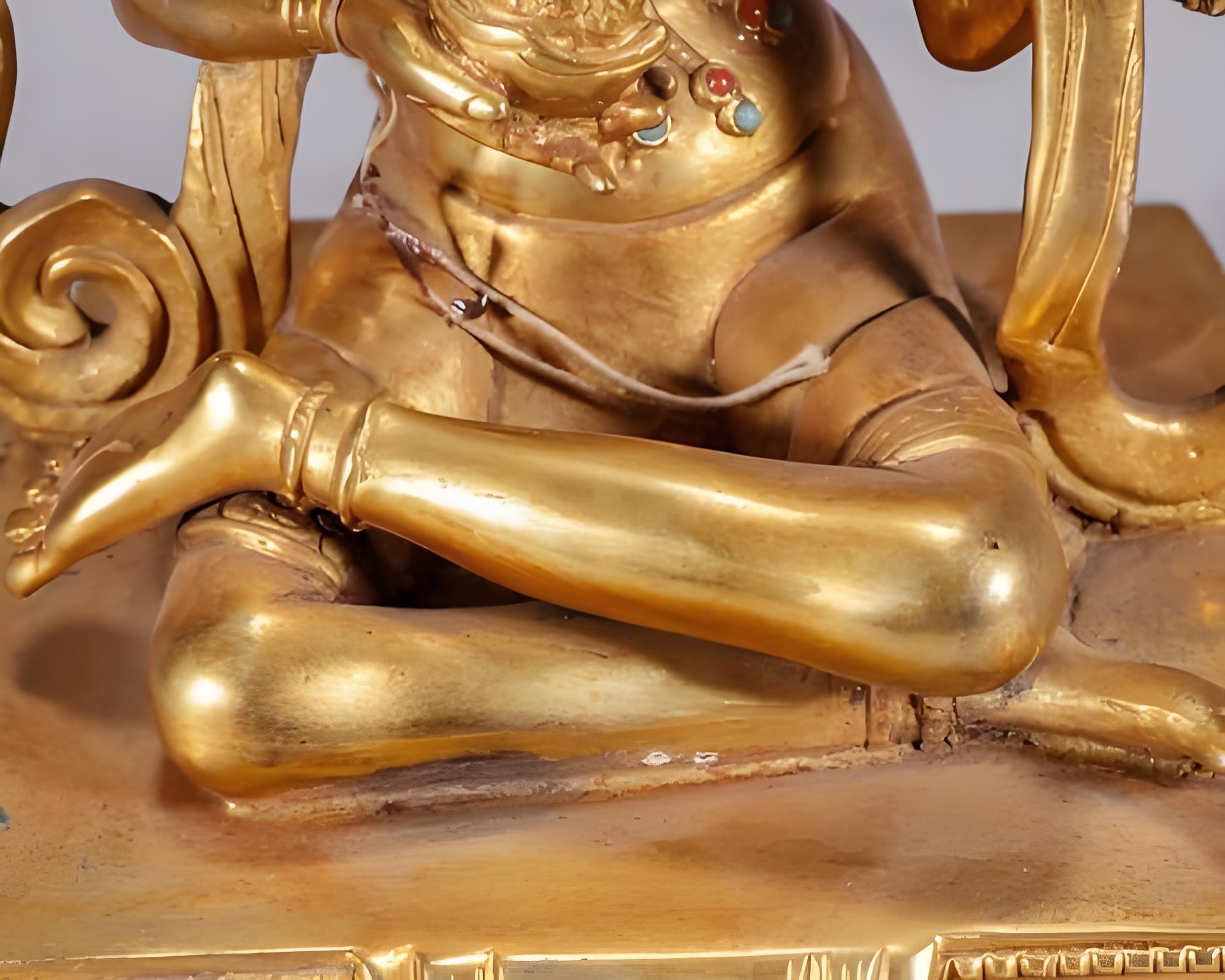type
status
date
slug
summary
tags
category
icon
password
AI summary

Sakyamuni is a phonetic translation of the Sanskrit "Sakyamuni," which is sometimes translated as "Shijiawen." "Sakyamuni" consists of two parts: "Sakya," which is the name of a clan and means "able," and "Muni," which can also be translated as "wen" and means "benevolent," "learned," "patient," "silent," or "meditative." Thus, "Sakyamuni" means "one who is able to be benevolent," "one who can endure," "one who can be learned," or "one who is capable of meditative silence." It can also be interpreted as "the sage of the Shakya clan." "Sakyamuni" is a title, while his original name was Siddhartha Gautama.
Gautama, formerly translated as Qutan, is his surname. Professor Ji Xianlin offered an alternative interpretation, stating that Sakyamuni was born into a Kshatriya caste, whereas Qutan is a Brahmin surname, adopted from a sage's family. Siddhartha is his given name, meaning "auspicious wealth." The renowned Tang Dynasty monk Xuán Léi explained it as "the fulfillment of all meanings," or "the one who accomplishes the way of righteousness." In any case, it is considered an extremely auspicious and virtuous name.
Sakyamuni is also commonly referred to as "Buddha" or "Buddha Tathāgata." In popular vernacular, he is sometimes called "Buddha Ye" (Lord Buddha). "Buddha" is a shortened form of "Buddha Tathāgata," which is also transliterated as "Futuo," "Futu," or "Fotu," and means "awakened one," "the enlightened one," or "the wise one." "Awakening" has three meanings: 1. self-awareness; 2. awakening others (helping all beings attain enlightenment); and 3. the perfection of enlightened actions, which is the highest achievement in Buddhist practice. According to Buddhist teachings, only a Buddha (the awakened one) fulfills all three aspects, while Bodhisattvas lack the final aspect, Arhats are missing the last two, and ordinary beings lack all three. In Mahayana Buddhism, anyone who has completed these three stages of enlightenment is referred to as a Buddha. In general Buddhist scriptures, when it says "The Buddha spoke," it refers to Sakyamuni. Thus, the original meaning of "Buddha" is quite clear—it refers to "the enlightened one," someone who has attained complete awakening and profound wisdom.
In Buddhist texts, Sakyamuni is also often addressed as "World-Honored One" (Shìzūn). "World-Honored One" originally was a title of respect used in Brahmanism for revered elders and was adopted in Buddhism to refer to Sakyamuni. Buddhism holds that Sakyamuni possesses countless virtues and is venerated by the world, thus the title. According to the Tanxu Ji (Volume 9), it says, "The Buddha, possessing the three virtues and six meanings, is the most revered in the world, thus named the World-Honored One." Buddhist legend narrates that when Sakyamuni was born, he pointed one hand to the sky and the other to the earth, walking seven steps, looking in all directions, and proclaimed, "Above the heavens and below the heavens, I alone am the most honored!" The myth of the newborn speaking such profound words illustrates Sakyamuni's self-respect and confidence.
Another popular title for Sakyamuni is "Tathāgata" or "Tathāgata Buddha." "Tathāgata" is a translation of the Sanskrit term Tathāgata. "Tathā" means "suchness" or "as it is," which refers to the "absolute truth" or the true nature of all things in the universe. "Tathāgata" refers to one who has arrived at the truth of suchness and is a revealer of truth. According to the Chengshi Lun (Volume 1), "The Tathāgata comes to full enlightenment by following the path of suchness." The Xingzong Ji states, "Suchness is equality, free from illusion; therefore, it is called the path of truth. One who follows this path brings benefits to all beings and thus is given this name." The Dai Ri Jing Shu (Volume 1) explains, "Just as all Buddhas arrive at full enlightenment by following the path of suchness, so too did Sakyamuni, thus he is called Tathāgata."

"Tathāgata" is one of the ten major titles of Sakyamuni, which are as follows:
- Tathāgata
- Worthy of Offerings (worthy of the offerings of humans and gods)
- Fully Enlightened (having correct and all-encompassing wisdom)
- Knower of the Three Times (past, present, and future)
- Well-Gone (having reached Nirvana)
- Worldly Savior (understanding the world)
- Unmatched (the highest and most supreme)
- Teacher of the Gods and Humans (leading all beings toward goodness)
- Heavenly and Human Teacher (the guide for both humans and deities) World-Honored One.
Among these, the titles "Tathāgata" and "World-Honored One" are the most commonly used.
In a narrower sense, "Tathāgata" refers specifically to Sakyamuni, while in a broader sense, it can refer to all Buddhas, such as Amitābha Tathāgata, Medicine Buddha Tathāgata, etc.
In Tibetan Buddhism, Sakyamuni is called "Vairocana Buddha," which is translated as "Great Sun Tathāgata." The Sanskrit "Vairocana" is a synonym for the "sun," thereby likening Sakyamuni to the sun.
Loading...






